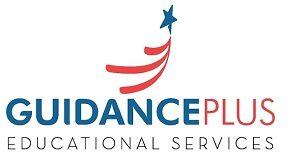
Only change is constant! With time, everything changes; it is crucial, too. Similarly, the world of 1:1 education is also rapidly evolving, as is the mode of education. It can be challenging to keep up with all the latest trends and developments. However, today’s education system is well-equipped with advanced learning facilities that enable students to online and personalized learning with advanced technology and shifts. Through this article, we’ll explore key elements for the future of education. We’ll assess the rising demand for online learning, personalized learning, and other trends that are likely to shape the education landscape in the years to come.
With rapid advancements in technology and shifts in societal needs, many ask – how do you think the future of education will be different from today? To anticipate this, we need to move towards more personalized, flexible, and technology-driven learning environments.
By keeping informed about these future education trends, educators and policymakers can better anticipate changes and embrace their strategies to ensure that they fulfill the evolving needs of students and prepare them for success in an increasingly dynamic world.
- Online Learning
In the future, online learning will continue to grow. Online learning started before covid, but it took place in real life during the pandemic time and post-pandemic time and continuously evolving. This trend is likely to continue to grow in the future. A recent report says, “The global online education market will grow by over 10% annually between 2021 and 2026.”
Online learning offers several benefits, such as more accessibility and flexibility. This allows students to learn from their own place and from anywhere in the world. It is also more affordable than traditional learning systems, making it more accessible to a wider range of students.
- Personalized Learning
This is another method of education which will be growing in the future. It offers tailor learning experiences to suit the needs and preferences of individual students. This approach is becoming rapidly popular, and it’s said that it will be the norm in the future of education.
In the traditional approach to education, a teacher delivers lessons to a large group of students where there is little place for individual learning and customization. However, with the rise of technology and data analytics, personalized learning has become much more feasible.
- Artificial Intelligence
Artificial Intelligence (AI) has already taken place in the field of education and changed the face of education. This trend will grow. AI can be used to automate administrative tasks, like grading, which frees up teachers’ time to focus on more meaningful work. It can also be used to craft personalized learning experiences, by analyzing data on student performance and giving targeted feedback and recommendations.
AI is also used to develop intelligent tutoring systems, which offer students with personalized support and guidance. These approaches can help analyze knowledge gaps, cater to additional resources, and even adjust the pace and difficulty of learning to meet individual students’ needs.
- Virtual and Augmented Reality
VR and AR are the reality of today. They have already taken place in many industries, including entertainment, sports, and healthcare. Now it is entering the sector of education. VR and AR technology facilitate students to interact and experience digital objects and environments in a way that was previously not possible. It can offer a completely immersive learning experience that involves multiple senses, making it easier for students to remember what they’ve learned.
Through VR/AR technology, students can go on virtual trips from the surface of Mars or the depths of the ocean, which in reality it would be not possible to access.

 How School Budget Cuts Are Affecting SEND Students and Their Support
How School Budget Cuts Are Affecting SEND Students and Their Support  Know How To Secure Admission In Top UK Universities: Tips For Overseas Applicants
Know How To Secure Admission In Top UK Universities: Tips For Overseas Applicants  A Step-by-Step Application Guide for Vietnamese Students Seeking High School in Australia
A Step-by-Step Application Guide for Vietnamese Students Seeking High School in Australia  The Ripple Effect of Principal Burnout—and How to Stop It
The Ripple Effect of Principal Burnout—and How to Stop It  Practical Tips for Dealing With College Stress
Practical Tips for Dealing With College Stress  How to Choose the Right Skills Future Course for Your Career Goals
How to Choose the Right Skills Future Course for Your Career Goals  8 Master’s Degrees in Education Teachers Should Pursue for Career Advancement
8 Master’s Degrees in Education Teachers Should Pursue for Career Advancement  Effective Follow-Up Work Strategies for Montessori Teachers: Fostering Growth
Effective Follow-Up Work Strategies for Montessori Teachers: Fostering Growth  Top Strategies for Finding Students for Online Teaching Using Social Media in 2026
Top Strategies for Finding Students for Online Teaching Using Social Media in 2026